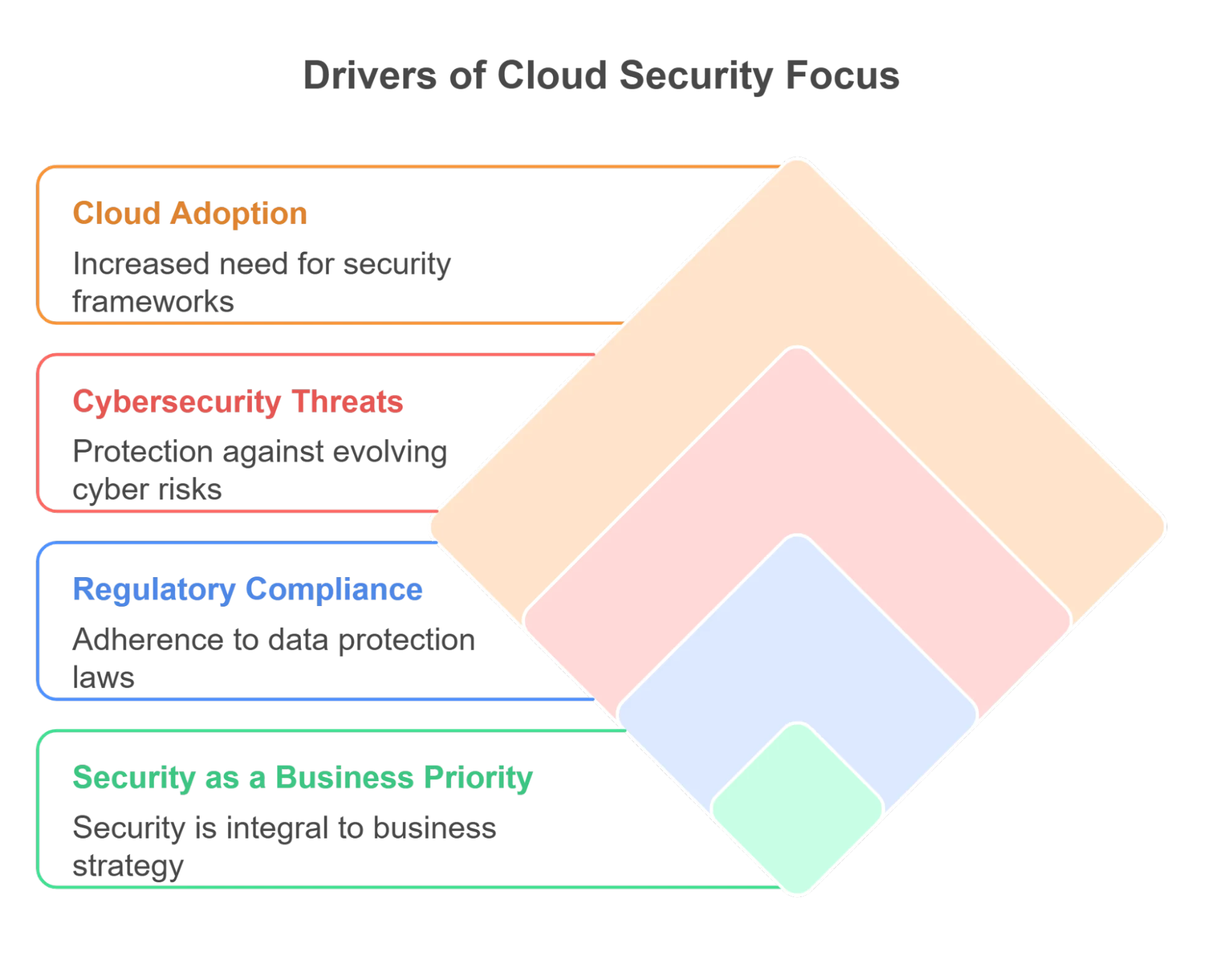Understanding Cloud Security from a Trusted IT Support Provider in Fort Lauderdale
North Charleston, United States - October 17, 2025 / Cantey Tech Consulting - Charleston Managed IT Services Company /
Charleston IT Support Provider Explains What Cloud Security Is
Cloud security is foundational to modern business, underpinning both operational agility and organizational trust. As more enterprises migrate sensitive workloads to the cloud, understanding what cloud security entails and its implications for business resilience-has become a non-negotiable priority.
With 82% of breaches now involving cloud-stored data, robust cybersecurity measures are essential not only for safeguarding assets but also for empowering innovation.
As Willis Cantey, CEO of Cantey Tech Consulting, says, "A well-architected cloud security strategy turns risk mitigation into a catalyst for growth, ensuring IT works securely and seamlessly."
In this blog, one of Charleston's most experienced IT support firms will explain what cloud security is, highlight the major threats businesses face, and walk through strategies to strengthen infrastructure, workloads, and data protection so organizations can stay resilient in the cloud.
Why Cloud Security is a Top Priority for Modern Enterprises
Cloud security has become one of the most critical priorities for businesses of all sizes. As organizations accelerate their digital transformation and migrate workloads to the cloud, they face growing challenges that demand stronger protections for sensitive data and infrastructure.
Key Drivers Behind the Rising Focus on Cloud Security
1.Explosive Cloud Adoption
Public cloud adoption continues to grow at record speed. Global cloud spend is projected to reach $723 billion by 2025, as enterprises expand their digital environments. This rapid adoption increases the need for consistent cloud security frameworks to prevent breaches and data loss.
2.Escalating Cybersecurity Threats
With a growing number of vulnerabilities disclosed each year, threat actors are increasingly targeting cloud environments. From ransomware to misconfigured storage buckets, organizations must prioritize cybersecurity in the cloud to stay ahead of adversaries.
3.Stricter Regulatory Compliance
Governments and regulators worldwide are tightening privacy and data protection laws. Enterprises are expected to demonstrate strong cloud compliance and safeguard customer data, or risk heavy fines and reputational damage.
4.Security as a Business Priority
According to industry reports, 77% of organizations cite security as their top cloud concern, highlighting its central role in digital transformation, business continuity, and customer trust.
Cloud Security Challenges for SMBs
For small and mid-sized businesses (SMBs), these pressures often create unique challenges. Limited budgets, fewer in-house security experts, and complex regulatory requirements can leave gaps in protection. Partnering with a trusted cloud security provider or technology consultant helps SMBs:
- Implement proactive security strategies
- Maintain compliance with evolving regulations
- Strengthen resilience against cyber threats
- Scale securely as their business grows
Building a Secure Cloud Future
Cloud security is no longer optional, it is foundational for enterprise growth and innovation. Organizations that address today’s risks with proactive security measures will not only protect their data but also gain the resilience, agility, and customer confidence needed to thrive in the digital economy.

Understanding the Reality of Cloud Security Threats
Cloud security threats are not hypothetical, they are real, persistent, and becoming more sophisticated. Attackers often exploit misconfigurations, such as open storage buckets or poorly managed access controls, to gain unauthorized entry.
Phishing remains a common entry point; a single careless click can expose sensitive data and trigger cascading consequences, from regulatory penalties to lasting reputational harm.
To address these risks, organizations must recognize that 24/7 cloud monitoring is no longer optional. The ability to detect and respond to threats in real time is critical, especially as adversaries move quickly.
Equally important is having a certified, experienced team that can contain incidents before they escalate, particularly for firms that may not have deep in-house cybersecurity expertise. Without this level of vigilance, even minor oversights can evolve into significant breaches.
Turn Risk Into Opportunity
Key Aspects of Cloud Security and Their Business Impact
| Security Issue | What It Is | Implications |
| Common Cloud Security Threats | Misconfigured storage, phishing attacks, unauthorized access to sensitive files | Data exfiltration, regulatory fines, reputational damage |
| Threat Evolution | Cybersecurity threats continually adapt to new cloud technologies | Constant need for updated security strategies |
| Complexity of Cloud Environments | Cloud’s scale and complexity make it an attractive target for adversaries | Increased risk of overlooked vulnerabilities |
| Defense Strategies | 24/7 monitoring, certified and experienced response teams | Faster detection and containment of threats, especially for organizations lacking in-house expertise |
| Realistic Expectations | Security cannot guarantee zero downtime or instant solutions | Focus on resilience and rapid response rather than absolute prevention |
Understanding The Importance of Infrastructure Security in Cloud Computing
As more than half of organizations now use managed service providers (MSPs) to oversee at least some portion of their public cloud workloads, infrastructure security in cloud computing has become a cornerstone of operational resilience.
At its core, infrastructure security encompasses the policies, controls, and technologies that safeguard your cloud-hosted networks, virtual machines, and storage. Infrastructure security strategies include:
- Network Segmentation and Firewalls: Isolating workloads and enforcing granular firewall rules can significantly limit the blast radius of potential breaches.
- Identity and Access Management (IAM): Applying strict authentication and least-privilege policies helps reduce the risk of unauthorized access.
- Continuous Monitoring and Auditing: Maintaining real-time visibility into your infrastructure is essential for detecting misconfigurations and anomalous behavior.
- Automated Patch Management: Timely patching is critical as cloud environments scale and evolve rapidly.
- Responsive, local support also plays a vital role in accelerating incident detection, resolution, and ultimately helping to protect both business continuity and reputation.
Why Cloud Workload Security Has a Critical Role in Modern Enterprises
Cloud workload security addresses the challenge of protecting applications, data, and services as they move fluidly across diverse cloud environments. As organizations deploy resources in AWS, Azure, and Google Cloud, the attack surface widens, demanding controls that are both robust and adaptive.
Centralized visibility in the workload is essential. For instance, a global retailer can streamline risk management by automating policy enforcement and monitoring threats in real time across all platforms. These processes tend to include:
- Regular patching: Address vulnerabilities before they are exploited.
- Custom encryption and access controls: Protect data within specific workloads.
- Continuous monitoring: Detects anomalies and misconfigurations early.
Why Data Security in Cloud Computing Is a Business Imperative
Data security in cloud computing is more than a technical requirement—it’s a business imperative. A single breach can erode customer trust and lead to regulatory fines that dramatically impact the bottom line. As cloud adoption continues to grow, understanding core data security practices is critical:
- Encryption at Rest and in Transit: Protects sensitive data from interception or unauthorized access.
- Granular Access Controls: Ensures only authorized users can access specific datasets.
- Regular Security Audits: Identify vulnerabilities and compliance gaps before they can be exploited.
- Data Loss Prevention (DLP) Tools: Monitor and block risky data transfers.
- Incident Response Planning: Prepares teams to respond swiftly to breaches and minimize impact.
Implementing stronger encryption and access controls can reduce breach risk significantly. Equally important is a solid data storage and backup strategy, since 60% of small businesses that lose their data shut down within six months, reliable backup is critical for both accessibility and security.
For practical resilience, prioritize regular, business-focused security audits and planning with trusted experts—this ensures your strategy remains actionable and compliant as threats evolve.
Put Cloud Security into Action with a Trusted Charleston IT Support Company
Transforming cloud security from strategy to reality requires disciplined execution and ongoing vigilance. Effective cloud security depends on continuous monitoring, precise access controls, and regular alignment of security policies with your business objectives.
It’s not enough to implement basic safeguards-true resilience comes from building layered defenses that evolve as both threats and your organization’s needs change.
Ask yourself: Are your current controls robust enough to support your cloud ambitions without introducing unnecessary risk?
For guidance that reflects decades of managed IT and cybersecurity expertise, a certified team, and a business-first mindset, Cantey Tech Consulting is ready to help.
Our 24/7 monitoring and responsive local helpdesk ensure your technology supports your goals-so IT just works. Contact Charleston's most reliable IT support provider today to start building a cloud security strategy you can trust.

Contact Information:
Cantey Tech Consulting - Charleston Managed IT Services Company
2702 Azalea Dr
North Charleston, SC 29405
United States
Info CanteyTech
(843) 892-6221
https://canteytech.com/


